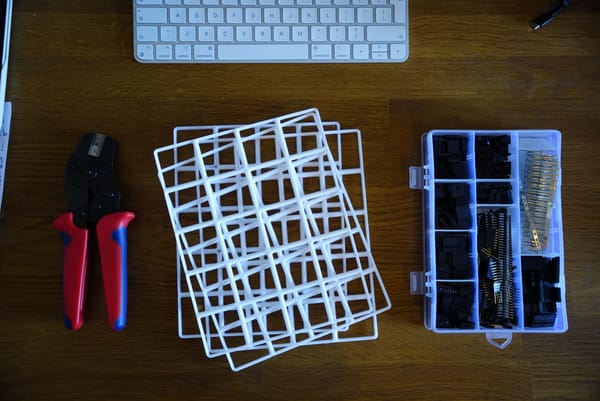A case for humility

As I go through some personal wrestles this year, I made a conscious decision to rekindle my habit of reading a little bit each day. There are two books I have been moved by to put these ideas on paper: Augustin's Confessions and Nietzsche’s Eccentric Homo.
At a glance, these couldn't be further out from each other. But dig behind the vail of prejudice (which I'm most guilty of) and you'll find incredible wealth.
Augustin - what could one of the most prolific Christian Doctors teach me, someone who's faith is tested constantly and, even in my best times, would not be able to raise to a high moral standard.
Nietzsche - what could this nihilist tell me, as my life is already nihilistic enough these days.
Modern struggles, modern context - surely...
We often find ourselves with such perverse infatuation for our own time and universe of unique problems.
After all, we're a generation of independent, self-determined, atheists, coming from nothing and heading towards wherever we choose or want. "I can be whatever I want to be" is the powerful mantra that every child of our generation knew from parents and educators.
It's perhaps should be no surprise that we find it very plausible and justified to maintain that individualistic space as we plummet into despair and misery.
After all, who could help us? Critique of everything that came before us has become second nature, from the safety of our phones, in the western restaurants and cafés, behind the security of systems of governance. In fact, those are not immune to our critique either. We're in a constant state of arousal - the court is always in session, eager to find new plaintiffs.
Why should we pay attention to those who came before us? The past surely is filled with the misinformed at best, but much more likely, with malicious sexists, misogynists, racists, or even worse: religious people (those completely confused about the nature of reality).
And the further you go, the bigger the gap is... how could someone from 1000 years ago speak to me, about this breakup over email after a 5 year old cohabiting relationship?!
Well... the context will be different for sure, but are we that different across time and space?
This is precisely where the root of my case for humility lies. Just casting a shy doubt to allow you to start inquiring deeper.
Humility means true human growth, not corporate growth
Don't be shocked if this shy doubt develops into something that transforms your life - truly, not on the surface. This is precisely why I believe one of the greatest qualities in our day is humility.
It can rescue you from the winds of the age, which can crush your soul to such a degree that no amount of Xanax will quite restore.
A pretty flower with no roots is doomed. Humility will allow you to find the right soil and eventually ground you, and enable you to flourish. It will soften your heart up to new ideas and thoughts, which is far better that the hardened hearts of left/ right wing zealots.
Humans hearts are made of flesh - they are meant to be soft!
Not everything will persuade you, and you will maintain your identity through this - don't be alarmed. There is little danger in the feed replacing the human, so have faith, have courage, and allow your mind to take the nutrition it needs.
You might discover new angles, nuances, arguments, hope, colour. Humility is a great tool in your arsenal - you don't know it all, you're allowed to look (properly look, not just straw man/ look to dismiss) at all sides. You're allowed to disagree, you're allowed to even disagree with a past self.
To go forwards, one might consider going backwards
How does one acquire humility in an age when pride is what society celebrates?
I think a great place to start is reading some Classics! There's enormous value in picking up a complete work that stood the test of time over generations and generations.
Go ahead. Start reading an ancient philosophy books or a text from the doctors of the church. I'd recommend personally western philosophy or theology, because those are the ones I'm most familiar with, but you can start anywhere.
If you manage to push beyond the language barrier, what do you find might surprise you!
You will find yourself time travelling into the minds of people from far away.
Even though the reality of these people seems, on the surface, fundamentally different (no Internet, no phones, no cars, no free international travel, no holidays, no pensions, no TikTok, no healthcare), their humanity is exceptionally relevant!
Inside of those ancient pages you will find shockingly modern struggles.
Continue to read.
The conclusion you reach might sound like this. These are not ignoring people with shallow observations of the universe or themselves, and with views that should be immediately dismissed. No. These are people who look deep inside of their humanity to discover truth about themselves and about the universe.
And perhaps because of their epistemology, the truth they discovered is seems a lot less fragile. A lot of it is as useful today as it was yesterday.
I put it to you that a lot of the struggles we experience today would swiftly be alleviated if only we dared to peak into what our ancestors have left for us to build on.
The sense of human community and unity you get from this will far outweigh the existential panic that the media is so desperate to maintain.
Questions about existence itself, desire, lust, freedom, peace, God, truth, beauty, nature of pain and evil, doubt, meaning, goodness - they have all been very throughly looked into so that you don't find yourself alone with them. Nothing is fully solved yet, but perhaps solved enough for most of us.
Instead of orienting ourselves towards the light that might indicate ways out of this maze, we turn inwards to our own darkness which is unsatisfactorily lit from time to time by the odd phone notification.
We prefer to despair in the new and fragile, than to receive with healing humility the resilient wisdom stemming from the struggles of old. And we pretend like that's a great achievement...
It's not. Humility to learn is where it's at.
PS: As for me, a few days into my reading journey, this happened.
I ended up feeling so validated to read about the awful struggles, faith crisis and lapses of Augustin. It resonated with me to the core, it allowed me to look at my own shortcomings with much more compassion, and made me want to restart journaling.
I was so motivated by Nietzsche’s arguments, which is not something intuitive to declare! He critiques sedentary habits and champions ideas born from movement - walking, exertion, or outdoor activity - as inherently more dynamic and truthful, contrasting them with stagnant “indoor” thinking. I needed to read this.
Notice that neither the zeal nor apathy I was afraid of at the start actually came my way. It's useful to stay humble.




